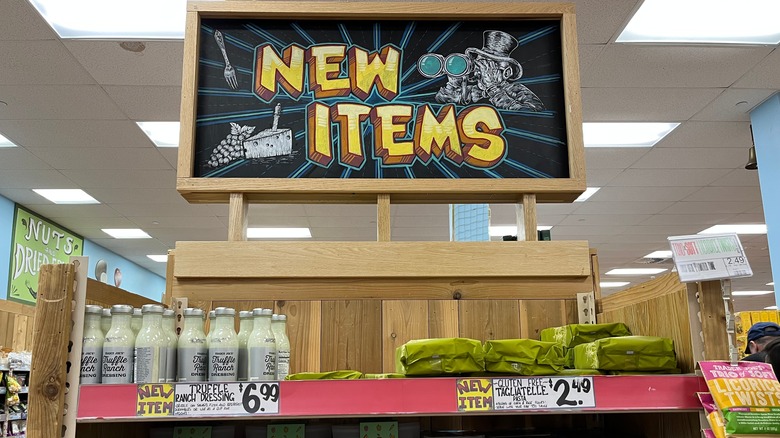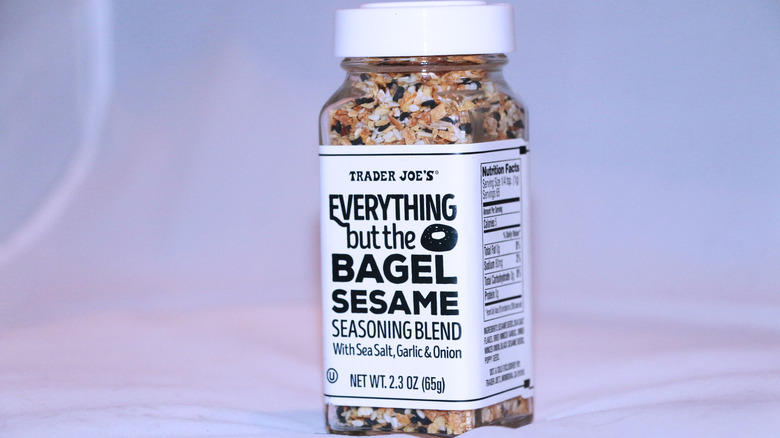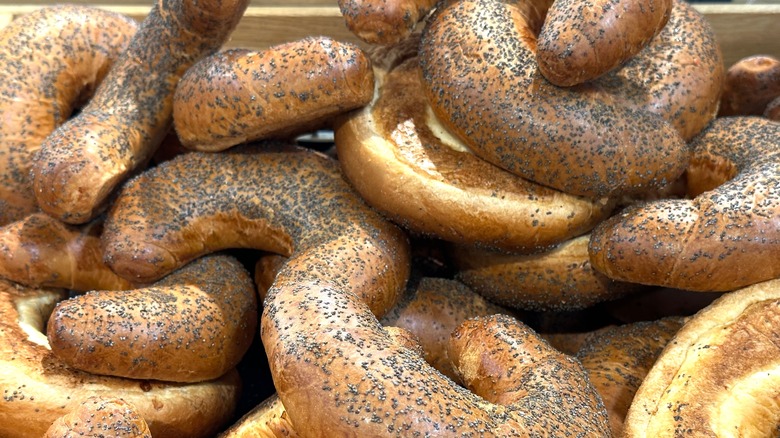Why This Popular Trader Joe's Item Is Banned In South Korea
There are plenty of items you should never buy at Trader Joe's, but the grocery chain's Everything But The Bagel Sesame Seasoning Blend isn't one of them. However, if you're a fiend for the stuff with a penchant for travel, be warned: You can't take the popular spice mix with you if you're heading to South Korea. The seasoning is banned in the East Asian country due to one specific ingredient. While the salt, garlic, and sesame seeds in the blend are fine, South Korea takes issue with poppy seeds, which its customs authorities claim are a narcotic substance due to the fact that poppies are used to produce opium.
So really, the ban isn't specifically about the Trader Joe's version of everything bagel seasoning — if you make your own mix at home, you also couldn't take that into the country. However, as of summer 2024, Korean customs officers seem to be honing specifically on the Trader Joe's product. Signs in Korean airports warning of the poppy seed ban feature photos of the Trader Joe's branded seasoning mix; some of these have been posted to X (formerly Twitter).
South Korea isn't the only country to ban poppy seeds, although only a few others do: The United Arab Emirates has similar laws, while Singapore requires that seeds be tested before being imported. However, there's no indication that these other two countries have focused on Trader Joe's seasoning as a particular concern.
Why the seasoning blend's poppy seeds probably aren't a problem
The ban appears to be specifically enforced in Seoul's Incheon airport, and it's unclear why authorities are seemingly targeting the Trader Joe's product. It's likely because, in recent years, the seasoning mix has become particularly popular, getting recommended by influencers and food publications as a topping for everything from instant ramen to avocado toast.
Generally speaking, though, poppy seeds are completely safe to eat. This is because, while poppies are used in the production of opiates (which includes both prescription and illicit drugs such as codeine, morphine, and heroin), the seeds don't contain any of those potentially harmful opium alkaloids. According to the U.S. Drug Enforcement Administration, ppiates from other parts of the plant can end up on the seeds, but poppy seeds used for food are typically washed; for the seeds to be classed as food grade, they generally need to be washed. Although there's no explicit indication of whether Trader Joe's' everything bagel seasoning uses washed poppy seeds, it's probably safe to assume this is the case, as it's the norm for food.
The small issues with poppy seeds
In the unlikely event that Trader Joe's mix contains unwashed seeds with opiate traces, this probably wouldn't be an issue either due to the very small volume of poppy seeds you'd be consuming. For context, unwashed poppy seeds are used to make a tea with slight sedative properties, but it requires a seriously large volume of poppy seeds to get that small buzz. To make about a quarter gallon of the steeped beverage, you need over 4 pounds of unwashed seeds. In contrast, to make six poppy seed bagels, you'd only use about a tablespoon of the seeds, which is equal to around just 9 grams (a batch of everything bagels would use even fewer poppy seeds). Scientific research generally agrees that you'd need to consume excessively high amounts to get a narcotic effect (via The German Federal Institute for Risk Assessment).
That said, poppy seeds can cause sensitive drug tests to give a positive test result for opiates. For this reason, the U.S. Department of Defense warned military service members in 2023 to avoid poppy seeds if they were possibly subject to drug testing. That said, this was acknowledged as an ultra-cautious move, and service members weren't officially banned from eating them. Ultimately, there's very little chance of getting high from eating them — in reality, per WebMD, you're more likely to experience bowel pain from over-eating poppy seeds.


